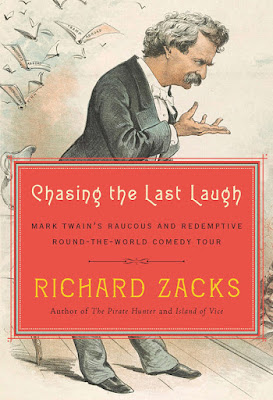I receive a good number of emails and a few phone calls from aspiring writers who ask me for my advice on how to become a writer.
The first piece of advice I offer is to get a day job and hang on to that day job.
Good full-time jobs in journalism are hard to find and most freelance writers and fiction writers have a day job that pays most of their bills.
I became a Defense Department civilian employee after I was discharged from the Navy many years ago and I stayed with DoD until I retired.
For the last 15 years of my time at DoD, I was a freelance writer, working nights and weekends for newspapers and magazines. I made some money, but it was my DoD job that provided my major income, my health insurance and eventually, my retirement income.
I attended journalism courses at Penn State and Temple University, and they were helpful, but the second piece of advice I offer aspiring writers is to read.
If you want to learn how to
write, read books, magazines, newspapers, blogs and Internet publications. Read
everything, but especially read the great writers, such as Mark Twain, one of
my favorite writers.
Steven Matthew Leonard at news.clearancejobs.com offers a piece on writing advice and quotes Mark Twain:
“Writing is easy. All you have to do is cross out the wrong words.”—Mark Twain
More years ago than I care to remember, I first met the man who would come to define my future as a writer and storyteller. It was the first Monday of the spring semester of my junior year at the University of Idaho, where a gaggle of engineering students sat stuffed into uncomfortably small desks for our required technical writing course. Scrawled in white chalk across the blackboard were the words: “The man who does not read has no advantage over the man who cannot read.”
Standing to one side of the blackboard was our professor, Charles Stratton, wearing quintessential 1980s glasses and a threadbare sweater that could have been a hand-me-down from Ward Cleaver. I would later learn that his friends referred to him as “Skip,” but none of us were his friends and from the look on his face, never would be. In one hand, he held a long piece of chalk. In the other, an eraser—likely positioned for precise delivery if necessary. Skip Stratton didn’t suffer fools well, was blunt to the point of rudeness, and recognized us all as semi-literate STEM majors who, on a good day, would struggle to compile enough coherent words to assemble a readable sentence. But this was his job. And he was good at it.
He opened that first class
with a simple question: “Does anyone know the source of this quote?” He didn’t
wait for an answer but continued: “Mark Twain.” He explained that good writing
begins with good reading, and the more we read—especially from great
writers—the better we would write.
LISTEN TO THE WORDS OF MARK TWAIN:
… “Write what you know.” When writing, it’s best to focus on subjects in which you possess some personal knowledge. If you’re going to expand beyond those boundaries, do your research.
“Writing is easy. All you have to do is cross out the wrong words.” Learn to be your own critic. If that doesn’t work, find someone who will fill that role for you. Brutally.
“To get the right word in the right place is a rare achievement.” Take the time to find those words. As Twain also noted, this often comes down to the difference between the almost right word and the right word. If you want your writing to matter, strive for the right word.
“Anybody can have ideas–the difficulty is to express them without squandering a quire of paper on an idea that ought to be reduced to one glittering paragraph.” Avoid verbosity. Cut to the chase and tell the story.
… “If you tell the truth, you don’t have to remember anything.” In life as well as in writing, it’s best to stick to the facts. The more you embellish, the more likely you’re going to be written off. Told well, the truth is every bit as interesting.
… “Write without pay until someone offers pay.” Too often, new writers constrain their potential by seeking the rewards before proving their worth. If you’re good enough, someone will eventually offer to pay for your work. If not, then, as Twain remarked “sawing wood is what he was intended for.”
You can read the rest of the
piece via the below link:
Tell Your Story: Mark Twain and His Words on Writing - ClearanceJobs
And you can read my Philadelphia Inquirer review of Chasing the Last Laugh: Mark Twain's Raucous and Redemptive Round-The-World Comedy Tour below:






No comments:
Post a Comment